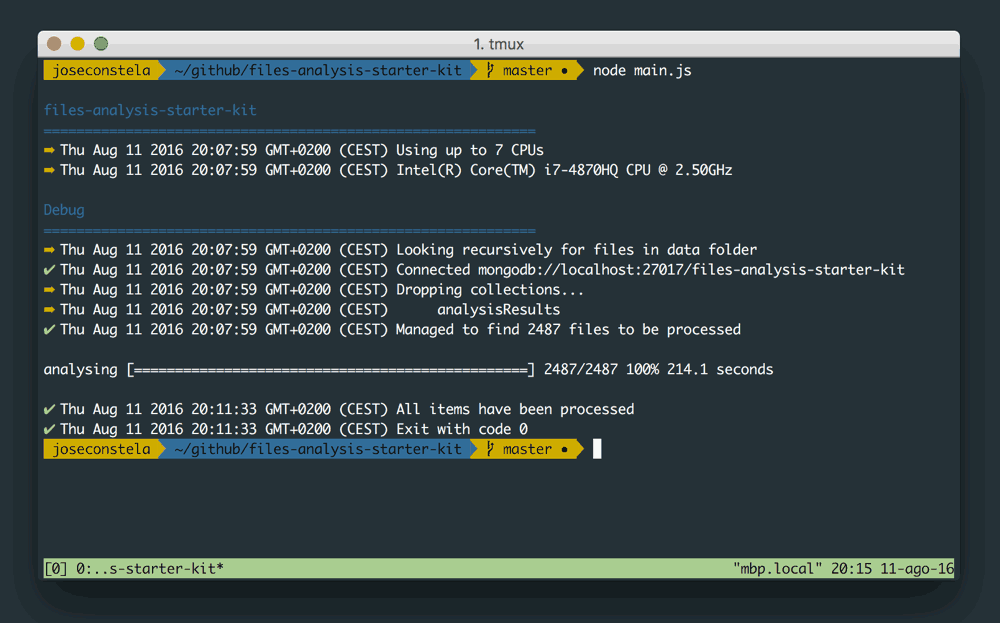0.3.3 • Published 9 years ago
fask v0.3.3

NodeJS package for analysing large amount of files.

This NodeJs library searches for all files within an specific folder - recursively - and sends each file info to your processing library. It takes care of multithreading, queuing and managing database connections.
## Usage
- Require the package
$ npm install fask --save- Require it and define your analysis
const fask = require('files-analysis-starter-kit')
// Pre-analysis hook
fask.before = (dbs, callback) => { callback() }
// The actual file processing
fask.process = (dbs, fileInfo, callback) => {
setImmediate(callback)
}
// Post-analysis hook
fask.after = (dbs, callback) => { callback() }
// Launch the analysis
fask.start({...})Options
Options for the .start method:
| Parameter | Default | Description |
|---|---|---|
| cpus | 100 | Max number of CPUs to use for concurrency |
| limitFiles | -1 (no limit) | Limit the number or files to be processed |
| mimeType | null (no filter) | Only |
| path | "data" | Files location |
| mongodb | localhost | MongoDB connection url |
fileInfo
The fileInfo parameter have the following structure:
{
root: '/',
dir: '/.../files-analysis-starter-kit/data/subfolder',
base: 'myPdfFile.PDF',
ext: '.PDF',
name: 'myPdfFile',
route: '/.../files-analysis-starter-kit/data/subfolder/myPdfFile.PDF',
mime: 'application/pdf',
stats: {
dev: 16777220,
mode: 33188,
nlink: 1,
uid: 501, // user-id of the owner of the file.
gid: 20, // group-id of the owner of the file.
rdev: 0,
blksize: 4096,
ino: 29670994,
size: 68704, // Size in bytes
blocks: 136,
atime: Thu Aug 11 2016 13:30:51 GMT+0200 (CEST), // last access
mtime: Tue Apr 01 2008 08:52:56 GMT+0200 (CEST), // last modification
ctime: Tue Aug 09 2016 04:20:35 GMT+0200 (CEST), // creation
birthtime: Tue Apr 01 2008 08:52:56 GMT+0200 (CEST)
}
}Databases instances
To use the DB connections use the dbs object. i.e.:
dbs.mongo.getCollection('myCollection').insert(...)